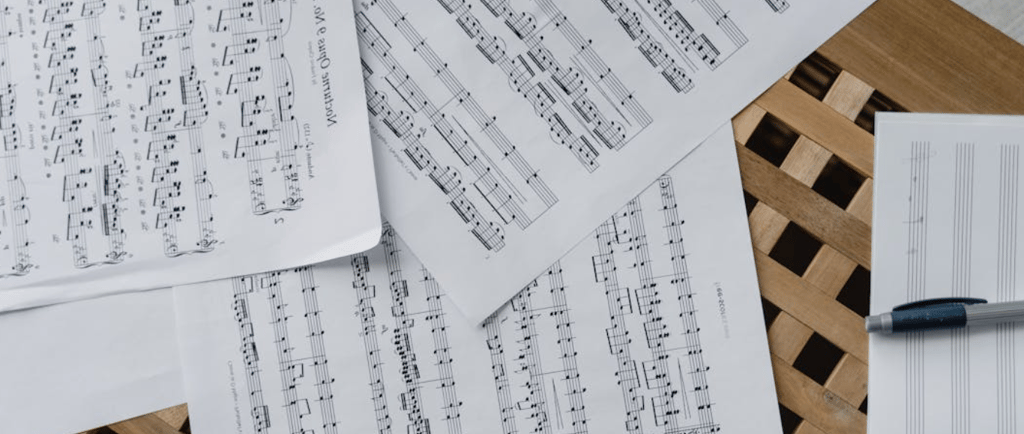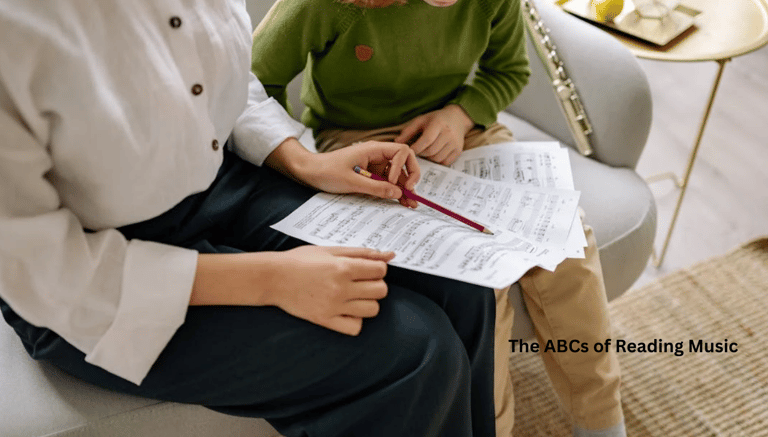Understanding Music Notation Essential Books for Musicians
Notation and understanding the music as musician
1/7/20254 min read


"Understanding Music Notation: Essential Books for Musicians"
Music notation is the lingua franca in which musicians commit and read sounds into Music. It forms a basis for performing and understanding any style or type of Music. Whether you are a beginner and want to begin reading Music or an advanced musician who wants to broaden your experience with notation, you will require the right resource materials. Suggest a few basic books for musicians who aim to enhance their skills in the same area.
Introduction: Why Understanding Music Notation Matters
Music notation is a written representation of sound that allows readers to read, write, and interpret it precisely. Centuries of preserving and transmitting Music allow composers and musicians to share their ideas with future generations. For musicians, mastering the art of music notation is an essential first step in grasping musical compositions, developing one's sight-reading skills, and ensuring their performances are accurate.
Provide essential books to steer a musician from one level to all-inclusive reading and writing skills.
Importance of Music Notation
Music notation is not limited to symbolism and rhythm understanding. It is the central skill through which one can express oneself with Music. The following are some reasons any musician needs to learn to use music notation.
1. Communication Across Cultures and Time
Music notation is the universal language that connects musicians of different cultures and time-space domains.
2 Clarity in musical performance
Music notation gives precise instructions for interpreting a musical piece. This includes pitch, rhythm, dynamics, tempo, and articulation so the musician can do it just as the composer wants. Without music notation, musicians would rely on memory or oral tradition, which means there is always a chance of inaccuracy and variation.
3. Sighting Improvement
especially in performing as an ensemble and orchestral performance. Mastering sight-reading skills relies upon familiarity with key music notation. If familiar with more notation, a musician can equicklyand correctly identify the notes, rhythms, and other elements of Music much faster.
Must-Read Books for Musicians to Learn Music Notation
Several books help you understand music notation and all its components. Whether you are learning to read for the first time or just sharpening up a little, the following resources would be essential in giving comprehensive explanations, exercises, and tips on improving your music notation knowledge.
1. The Complete Idiot's Guide to Music Theory by Michael Miller
First, Michael Miller's The Complete Idiot's Guide to Music Theory is perfect for an introduction. It breaks down music theory and notation into an easy-to-read format. Some of the elements that most students overlook include explanations of notes, rests, clefs, time signatures, and scales. The book also teaches them more complex notions in key signatures, intervals, and chord progressions.
The book covers everything from traditional Western notation to modern practices adopted in contemporary Music. Since it provides detailed accounts of symbols, rules, and conventions of music notation, it ranks as one of the must-have references for serious musicians.
Key Features
• Overview of the notating practice across genres
• Expositions of musical symbols, rules, and conventions
• Guide for the advanced musicians
• Practical examples from classical to contemporary Music
3. How to Read Music in 30 Days: The Book That Has Helped Thousands of People Play Music on the Spot-Chad Young
A good resource to learn how to read Music fast is by Chad Young, entitled How to Read Music in 30 Days. It is mainly for persons who need better site reading skills or a course set up to learn music notation and practice it for musicians progressively. Being done on daily exercise and practising the notations of the Music is its core point. Key Features
30-day learning program step-by-step on music notation
• For the beginner and intermediate musician
• Practical exercise to improve upon sight-reading and notation
• A quick and effective way to learn music notation
4. "The Complete Musician: An Integrated Approach to Theory and Analysis," by Steven Laitz
An advanced musician knows The Complete Musician by Steven Laitz. This music notation book deals with music theory, analysis, and ear training. This applies to both the student and musician in developing integrated knowledge of Music and how that which is heard gets written down. Lastly, the very complex themes of voice leading, harmony, and counterpoint are all required to learn when one tries to master basic music notation.
Major Features include:
•Deep immersions into music theory and analysis
•Advanced harmony, voice leading and counterpoint
•Complete guide for professionals on how to use the notation of Music
•Working exercises and examples of both classical and contemporary Music
5. "The ABCs of Reading Music: A Beginner's Guide" by Karen Berger
Karen Berger's The ABCs of Reading Music is another excellent book for novices. It teaches the basic concepts of reading Music through a simple step-by-step process. It breaks down all these concepts clearly and visually, and musicians will understand the meaning behind reading the different kinds of Music: note values, clefs, time signatures, and much more.
Key Features:
Essential for notation is to put or portray your musical intentions before others.
2. Transposing Music
Music transcription is the process of listening to a musical recording and notating it. Every musician who intends to learn something from a record or understand some work done in the past does that and, hence, requires it. Special software, such as Finale or Sibelius, allows transcribing and editing Music.
3. Knowing and Playing Music
All the information about the pitch, Music, dynamics, and articulation can be found in the notation. The notation- whether for a band, orchestra, or solo-will orient the performance by the musician.
Conclusion
The books reviewed here are worth considering by musicians for beginners and advanced students alike. Mastery of such notations will ensure full development in musical abilities and guarantee perfect and lovely performance. Remember that practice, patience, and the right resources will help in this pursuit of music notation.
SEO Strategy:
By using keywords like "Understanding Music Notation," "Essential Books for Musicians," "Learn music notation," "Music notation books," and "Music theory" in a strategically dispersed manner in the article, we improve search rankings on Search Engine Optimization and increase visibility all while providing value to any musicians regardless of level.



